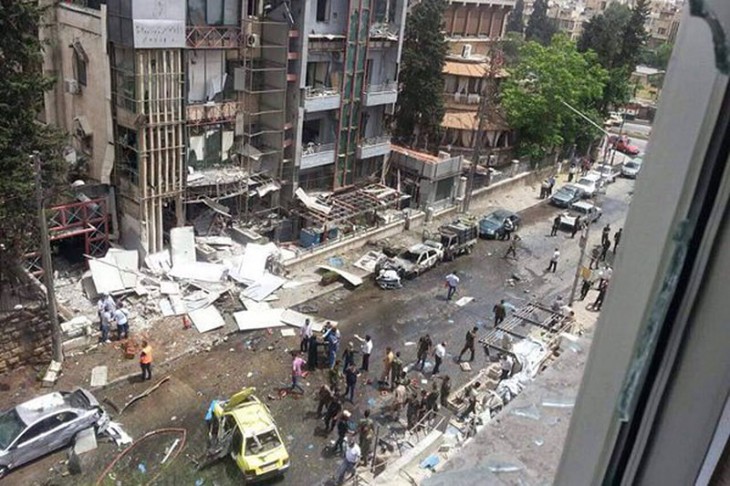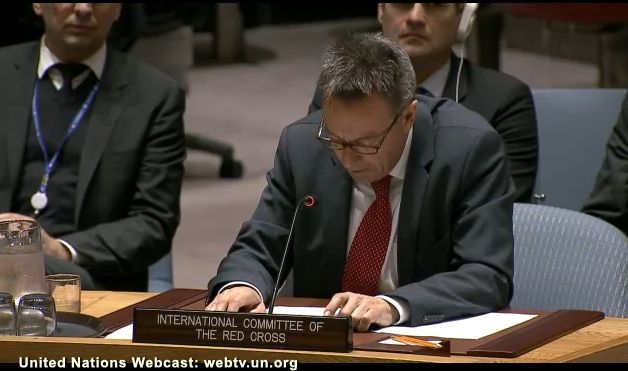ICRC President Peter Maurer has commended the United Nations Security Council for adopting the resolution that reinforces the protection granted under International Humanitarian Law to medical facilities and health care personnel during armed conflict.
On May 3, 2016, the United Nations Security Council unanimously adopted the resolution to strengthen protection for health care workers, the sick and wounded, hospitals and clinics, in armed conflict.
The resolution comes after relentless efforts on the part of the ICRC President, who has been calling for the political and diplomatic community’s urgent attention on the matter. The significance of the resolution cannot be overstated as three hospitals have been attacked and destroyed in Syria in the past one week alone.
As Maurer emphasizes in his speech, “The ICRC found that within three years, 2,400 attacks against patients, health personnel, facilities and transports occurred in 11 conflict-affected countries. That’s more than two attacks per day, every day, for three years. And it is only 11 countries we were looking at.”
Peter Maurer, along with Dr Joanne Liu, International President of Médecins Sans Frontières (MSF), had earlier welcomed the proposal for the landmark resolution, and in a joint article for The Guardian underlined that “the medical needs of people – no matter who they are, where they are from or what side they support or fight for – must take precedence.”
The Safeguarding Health in Conflict Coalition welcomes passage of the resolution
The coalition, which consists of more that 30 civil society, health provider, and human rights organizations, in its statement said: “The resolution recognizes and reaffirms the provisions of international human rights and humanitarian law guaranteeing protection of people engaged in medical activities and reaffirms that health workers should never be punished for following their ethical obligations to provide care.”
According to the coalition, in 2015 alone, hospitals in five countries were subjected to aerial bombing and dozens of people in teams vaccinating children were killed or abducted in four countries. In Yemen, after a year of war, 600 health facilities are no longer functional because of damage from attack or lack of staff, supplies, or electricity. In Syria, 2015 saw the highest number of attacks on hospitals since the conflict began.
Stop the Insanity
A day before the passage of the resolution – in an interview to Kimberly Dozier of Daily Beast – President Peter Maurer had underlined in no subtle terms that it can be very dangerous when political leaders and those in the running for top political positions start questioning the Geneva Conventions.
“I can’t tell you how damaging it is when leading politicians question what has been the legal standard,” he said.
Read more:
Text of Peter Maurer’s statement
Syria: ICRC calls on all sides to stop indiscriminate violence in Aleppo



